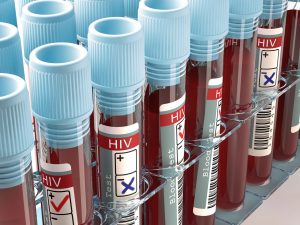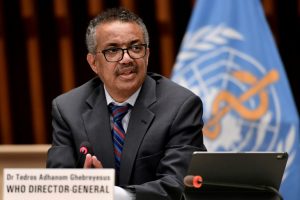The Director-General of the Ghana Health Service, (GHS) Dr. Patrick Kuma-Aboagye, says his outfit will deploy teams to churches, mosques, lorry parks and markets to help inoculate the majority of the population and to bring the vaccination closer to the citizens.
Speaking at the Minister’s press briefing on Sunday, September 26, 2021, Dr. Patrick Kuma-Aboagye said the GHS has also started deploying vaccines to all 16 regions.
Ghana on Sunday received 1.5 million doses of AstraZeneca vaccines from the German government to help in the inoculation drive.
Dr. Patrick Kuma-Aboagye further stated that priority will be given to areas with high infection rates.
“We have noticed that there are some people that the very little time to stay in the queue is also taking them away. So we are moving to our churches, our mosques, our markets, and the lorry parks to provide vaccination services there in a bid to get the vaccination exercise closer to the people.”
Over one million persons have been inoculated with nearly 800,000 fully vaccinated. Dr. Kuma-Aboagye said the country is expecting more vaccines.
“We are expecting 145,000 of AstraZeneca, COVAX is also going to send another 302,000 of AstraZeneca. Remember COVAX was supposed to send us 6.4 million doses and so far, we have received just a little over two million. So the rest will continue coming.”
The GHS begun the next phase of the COVID-19 vaccine rollout on Friday, September 24, 2021, with jabs of the AstraZeneca vaccine.
This phase of the exercise is open to the general public.
“Persons 18 years or older who have never received a vaccine or have received only one dose of AstraZeneca are to participate in this exercise,” the Ghana Health Service said in a statement.
About the country’s vaccination exercise
In March 2021, Ghana started the rollout of COVID-19 vaccines beginning with AstraZeneca.
As of September 23, 1,643,172 vaccine doses had been administered in Ghana, with some persons only receiving the first doses.
The country has 777,750 persons fully vaccinated, which is way short of the government’s target of 20 million by the end of 2021.






